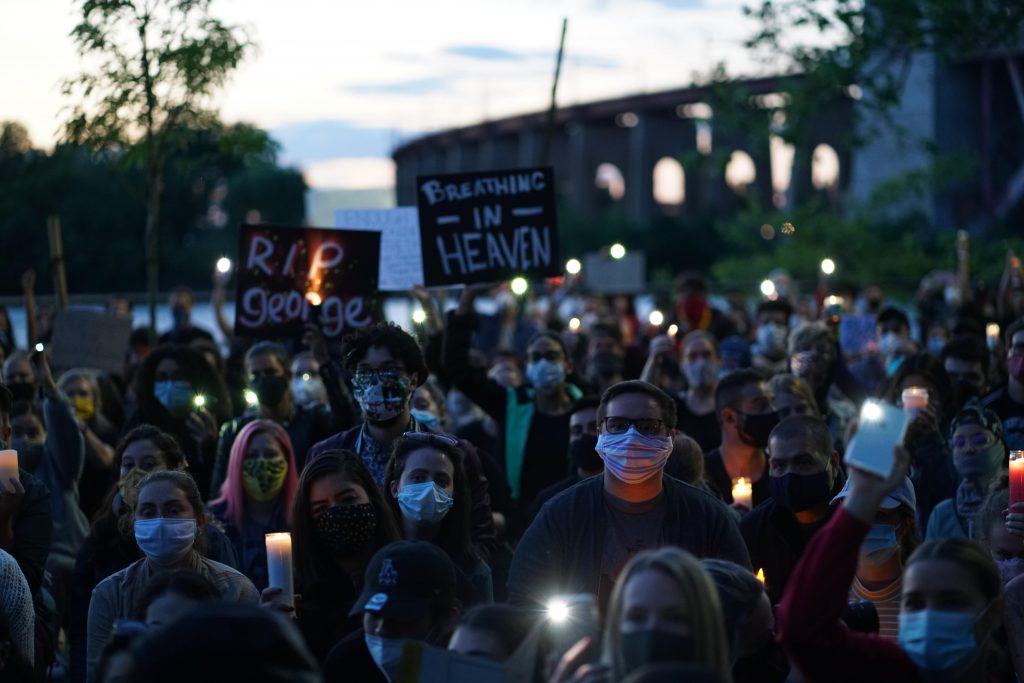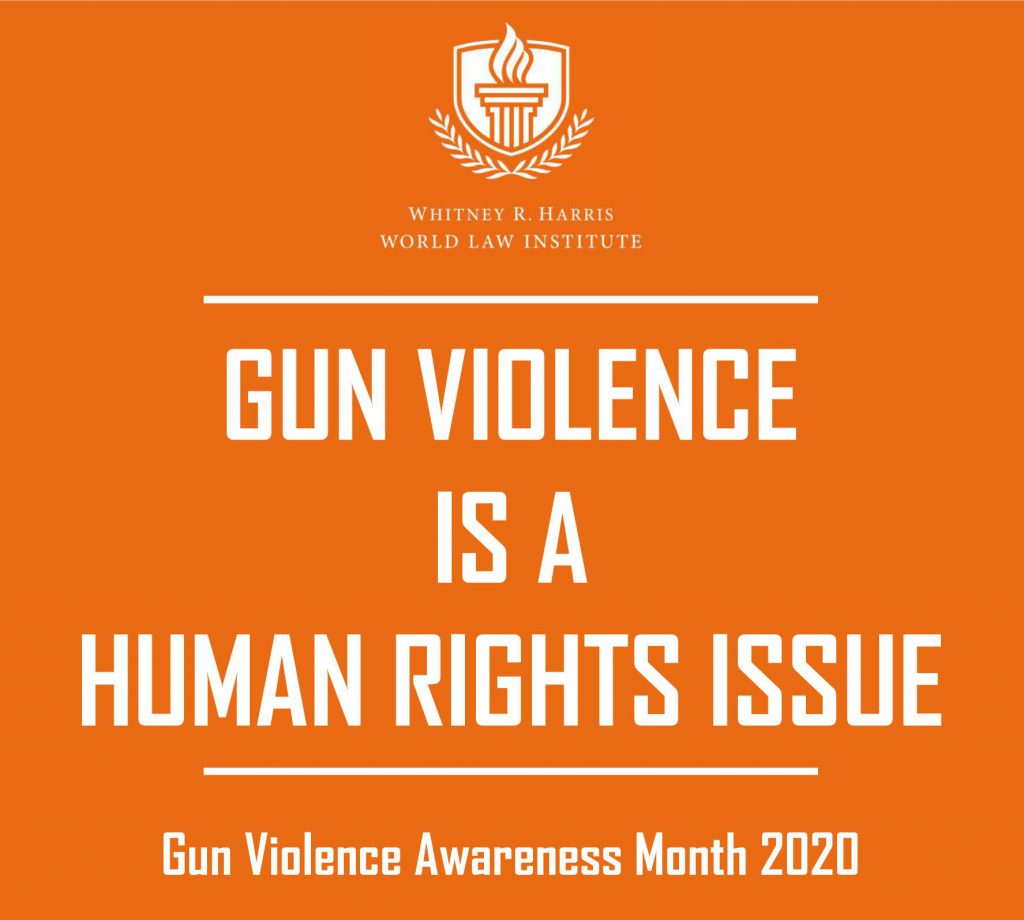By: The Rev. Marc D. Smith, Ph.D., Bishop’s Deputy for Gun Violence Prevention, Episcopal Diocese of Missouri; Priest Associate, Episcopal Church of the Holy Communion, University City
This blog is part of a special series by the Harris Institute’s Gun Violence and Human Rights Initiative and the Institute for Public Health’s Gun Violence Initiative in recognition of National Gun Violence Awareness Month, launched on June 5th for Gun Violence Awareness Day. Throughout this series we will highlight the work being done on this critical issue across campus, the St. Louis region, and the country.
“No justice, no peace!” This clarion cry in the aftermath of Michael Brown’s 2014 killing again reverberated throughout our country this past week as a nation rose to protest the murder of yet another black man, George Floyd, under the crushing knee of a police officer.
Nothing much seems to have changed since that sultry August afternoon on Canfield Green in Ferguson. Black men walking, shopping, driving, jogging – just living – in daily fear for their lives … at the hands of increasingly militarized police, white vigilantes, cop wannabes and drive-by gang bangers. Thousands are killed every year, mostly by guns. Marchers take to the streets. Already distressed neighborhoods are trashed. Candlelight prayer vigils are held, press briefings offered and commissions formed. And, then, we do it all over again in some other city. Time, after time, after time.

The rapid-fire cadence of gun violence and its consequences for so many among us have shaped my priesthood almost from its inception. I remember Shanya, the 13-year-old granddaughter of one of our food pantry clients, collateral damage in a Gravois Park gun battle between her drug dealing boyfriend and dissatisfied customers. More than 750 people gathered for her funeral, marked as much by grief as banality – a sense that if it’s Tuesday, we’re in someone’s church burying someone’s murdered child. There were Jas, C.J. and Brian, teenagers in my historically black parish who helped me understand the hopelessness that overwhelms so many of their friends who believe they’re unlikely to live beyond their early 20’s. And then there was Barry Jr., the eldest son of one of our congregation’s most prominent families – gunned down in a revenge killing and so badly disfigured that the funeral had to be postponed for two weeks while morticians reconstructed his face for viewing.
Numbed by the daily routine of gun violence, the seeming futility of protest and the abdication of governmental leadership – not to mention the systemic racism, economic inequality and social disenfranchisement deeply rooted in our community – it’s increasingly difficult to imagine “justice,” let alone “peace.” Perhaps, however, we’ve confused the syntax of our prophetic demand. Could it be that, in fact, it’s peace that begets justice? Can we even begin to explore the infinite dimensions of justice in our individual and communal lives without a fundamental relationship that binds us together and brings us into conversation?

The Abrahamic faiths – Judaism, Christianity, and Islam – offer a perspective grounded in precisely this need for human connection in creating a just society. “Shalom” and “Salaam” share the belief that “Peace” is more far more than the absence of violence or a state of emotional tranquility. Rather, it’s an intricate web of human connectedness, joy, respect and wonder at the gift of an inestimably diverse creation. Similar theological constructs also are evident in other major religious traditions. Each understands that justice can only be fully achieved in the context of a social contract in which human life and human rights are valued, truth shared, relationships reconciled, and “the other” welcomed. If we want justice, together let’s work for peace. “No peace, no justice.”
The Rev. Marc D. Smith, Ph.D.
Bishop’s Deputy for Gun Violence Prevention,
Episcopal Diocese of Missouri and
Priest Associate
Episcopal Church of the Holy Communion, University City
cotterboatworks@aol.com
